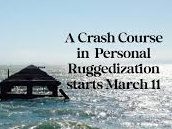by Margaret Wheatley and Deborah Frieze on Margaretwheatley.com…Emergence is the fundamental scientific explanation for how local changes can materialize as global systems of influence. As a change theory, it offers methods and practices to accomplish the systems-wide changes that are so needed at this time. As leaders and communities of concerned people, we need to intentionally work with emergence so that our efforts will result in a truly hopeful future.
Big tech’s class war politics
by John Ganz in Unpopularfront.news…I think we are in a crisis of hegemony moment: neoliberalism is dying, but its replacement is yet to be born. And, as in pre and post-hegemonic times, the field of politics is fragmented and incoherent, there’s no hegemonic class or portion of a class that’s able to lead, so everything reverts to “the economic-corporate phase,” when different social interests seek their own short-term benefits rather than coalescing behind a vision of social development.
A ‘doom loop’ of climate change and geopolitical instability is beginning
by Laurie Laybourn in The Conversation…It is a common refrain to say that geopolitics gets in the way of climate action. From the war in Ukraine to trade tensions, each year seems to bring another immediate priority that diverts focus from the imperative to act on climate change.
Collaboration and empathy as evolutionary success stories
by Daniel Christian Wahl in Medium.com…Spreading the story of why we care about life and the health of the whole and sharing the narrative of interbeing is culturally creative meta-design. By sharing the new and ancient story of interbeing we facilitate the emergence of diverse regenerative cultures scale-linked by empathy and cooperation.
Does talking about climate ‘tipping points’ inspire action — or defeat?
by Kate Yoder in Grist…Kopp said that the emphasis on climate tipping points might have made sense as a call to action 20 years ago, when the consequences of climate change weren’t so obvious. But in 2024, the hottest year ever recorded, its effects are apparent, with floods, fires, and heat waves noticeably worse than they used to be.
The great abandonment: what happens to the natural world when people disappear?
by Tess McClure in The Guardian…As populations move and shrink, people are leaving long-occupied places behind. Often they leave everything in place, ready for a return that never comes. In Tyurkmen, Christmas baubles still hang from the curtain rails in empty houses, slowly being wrapped by spiders. In one abandoned home, a porcelain cabinet lay inside a crater of rotted floorboards, plates still stacked above a spare packet of nappies for a visiting grandchild. Occasionally, abandonment happens all at once, when a legal ruling or evacuation sends people scuttling. But mostly, it is haphazard, creeping, unplanned. People just go.
Implications of the polycrisis for resilience in humanitarian action
Cascade Institute presents Thomas Homer-Dixon…Implications of the polycrisis for resilience in humanitarian action. A Forum for European and Central Asia National Society Leaders.
Global emergence of regional heatwave hotspots outpaces climate model simulations
by Kai Kornhuber, et al. in PNAS…Multiple recent record-shattering weather events raise questions about the adequacy of climate models to effectively predict and prepare for unprecedented climate impacts on human life, infrastructure, and ecosystems. Here, we show that extreme heat in several regions globally is increasing significantly and faster in magnitude than what state-of-the-art climate models have predicted under present warming even after accounting for their regional summer background warming.
Multisolving
Creating Systems Change in a Fractured World For most of Elizabeth Sawin’s career, she was not a multisolver. Instead, she worked on a single, albeit immensely important problem: climate change. Despite tremendous effort—long hours of teaching, attending conferences,...
The R word
by Alex Evans in The Good Apocalypse Guide…My idea of apocalypse resilience used to be pretty similar. Survival = self preservation (emphasis on self there) = stockpiling + steel doors x semiautomatic weapons.





